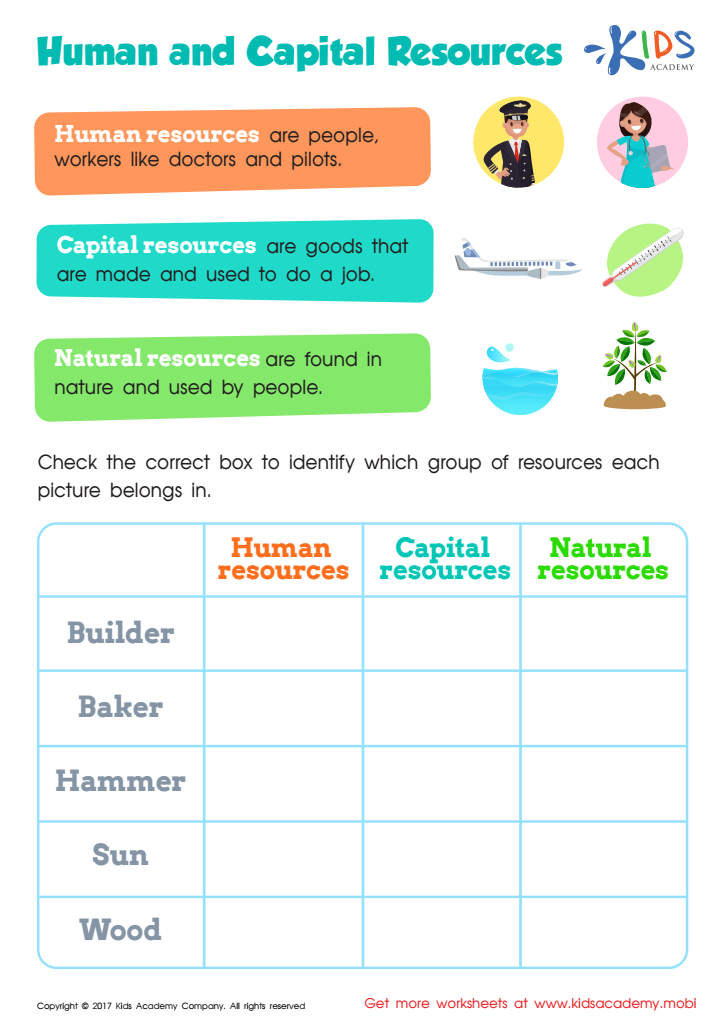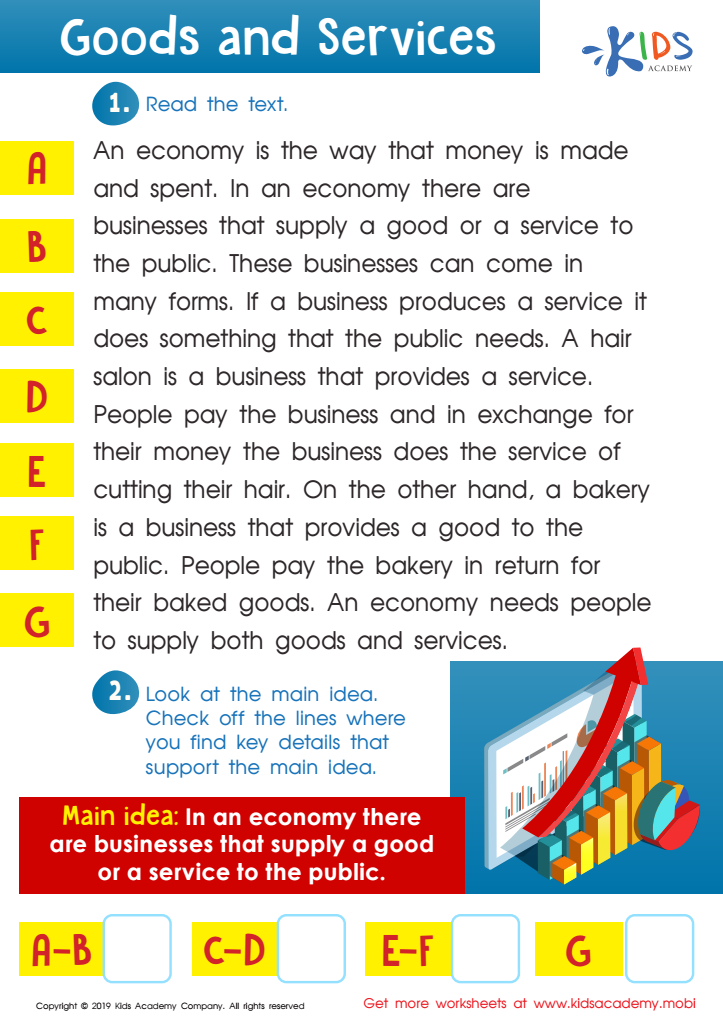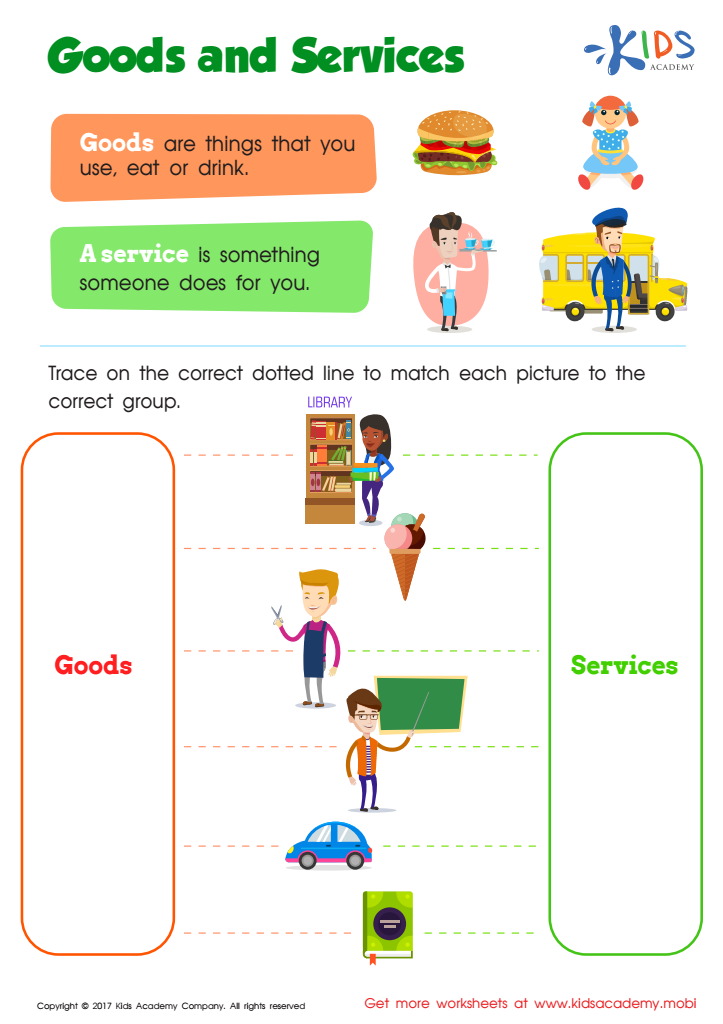Understanding economics Worksheets for Ages 8-9
3 filtered results
-
From - To
Introduce your child to the fundamental concepts of economics with our engaging Understanding Economics worksheets designed specifically for ages 8-9. These worksheets simplify essential topics like goods and services, wants and needs, and basic financial literacy. By incorporating fun activities and real-world scenarios, children can explore how the economy impacts their daily lives. Our carefully crafted materials aim to foster critical thinking and help young learners develop a solid economic foundation. Perfect for home or classroom use, these worksheets encourage kids to ask questions and engage with the world around them while building essential life skills. Explore now and empower young minds!


Human and Capital Resources Worksheet


Goods and Services Worksheet
Understanding economics at a young age is crucial for both parents and teachers because it lays the foundation for essential life skills. For children aged 8-9, basic economic concepts such as resources, needs versus wants, and decision-making are vital for developing critical thinking. By learning these concepts, children begin to understand how money works, the importance of saving, and the value of making informed choices.
Moreover, introducing economics in a fun and engaging way can foster curiosity and enthusiasm for learning. When children grasp these ideas, they become more equipped to navigate everyday situations, from managing their allowances to understanding the implications of spending versus saving.
For parents, incorporating economic lessons can enhance discussions around family budget plans or savings goals, fostering a more financially literate household. For teachers, integrating economics into the curriculum can make lessons more interdisciplinary, connecting math, social studies, and science. Ultimately, when children understand the basics of economics, they are better prepared to make sound decisions as consumers and contribute meaningfully to their communities, setting the stage for responsible adulthood. Thus, prioritizing economics education is beneficial for fostering a well-rounded, informed generation.


 Assign to My Students
Assign to My Students




















